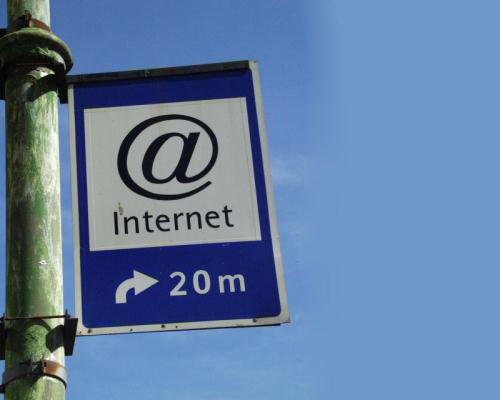Who'd be an ISP?
Once upon a time, providing internet services was a straightforward business. It certainly isn't any more, though, as the threat of new legislation and litigation hang over the industry.

ResponsibilitySo take all that into account, add in too the extra policing responsibilities that the authorities and entertainment companies are looking to impose on ISPs, and you simply have to wonder how much thinking has gone into it. How on earth can an ISP, on the resources it has, investigate the content of the large packets of data that shifts around its network? Do we make the postman responsible for the letters that come through our door? Of course not. So why does the IT industry seem to get lumbered with two dimensional thinking such as this? It's certainly not the first time, and it equally certainly won't be the last.
The problem, of course, is that by asking ISPs to even think about dealing with issues such as copyright infringement, it moves them away from the main business challenges they face, at just the point they need to be addressing them. All businesses are finite, and all have to choose just where to pinpoint their resources.
Thus this is the point when, surely, the government needs to be intervening in favour and support of the ISP, rather than layering them down with fresh responsibilities. Granted, there's only a finite amount of sympathy some of us can muster for an ISP, and rightly so. Stories of poor customer service, outsourced call centres, long hold times and unreliable connectivity - whilst still the exception more than the proverbial rule - can't be overlooked, and the likes of traffic shaping and capping on contracts that were supposed to be unlimited leaves a sour taste (and it's something that could yet get worse).
Yet all of this simply isn't going to change unless the broadband infrastructure is treated with some of the reverence and respect that the phone and power lines seem to earn. Broadband has emerged as a vital, contemporary communication tool, and one that continues to open up unpredictable and fascinating possibilities. And yet you can't help but feel that those at the top table of the UK simply struggle to understand it.
And this isn't an issue of copyright enforcement per se, as that's just a symptom of a broader issue. If Government genuinely understood the issues here, you can't help but feel that suggestions over policing data wouldn't even make it onto the draft of the press release. It's all too well suggesting three strikes and you're chucked off a network, but who defines, investigates and deals with the flack for it?
As things stand, the question remains, who'd be an ISP? The answer is, at least in the consumer space, those companies who are looking to offer a general communications portfolio as much as those genuinely looking to specialise and excel in the sector. Because now, for every BT (and the issues surrounding British Telecom alone could fill a feature with little worry), there are umpteen supermarkets, stores and loosely-connected media companies who are trying to get in on the act. Many of these aren't broadband specialists at all, even if the companies they lease their services from may be.
Yet given the increasing legislative demands and public pressures facing the modern day Internet service provider, is it any wonder that smaller, specialised firms are seemingly less prevalent in the market?
Sign up today and you will receive a free copy of our Future Focus 2025 report - the leading guidance on AI, cybersecurity and other IT challenges as per 700+ senior executives
-
 Motorola's new premium smartphone is a melting pot of camera innovation
Motorola's new premium smartphone is a melting pot of camera innovationNews The Signature has been built in collaboration with Sony, Qualcomm, and Instagram, and has four 50MP camera lenses
-
 Lenovo reveals slick rollable screen concept at CES 2026
Lenovo reveals slick rollable screen concept at CES 2026News The ThinkPad XD is impressive, but the ThinkBook Gen 7 Auto Twist will have us knocking our laptops open
-
 The role of ISPs in the connected world now and in the future
The role of ISPs in the connected world now and in the futureSupported Content The role of the ISP has grown precipitously as the world becomes increasingly reliant on staying connected, but they must now adapt to changing times…
-
 ISPs forced to ditch 'misleading' broadband adverts
ISPs forced to ditch 'misleading' broadband advertsNews Speeds can only be advertised if they are available to 50% of customers
-
 TalkTalk branded worst broadband provider by Which?
TalkTalk branded worst broadband provider by Which?News Sky and BT both also fared badly in the company's twice-yearly survey
-
 TalkTalk makes stand against nuisance calls
TalkTalk makes stand against nuisance callsNews Telco to dish out free privacy-enhancing features to landline customers.
-
 EMC claims Pure Storage stole trade secrets and staff in lawsuit
EMC claims Pure Storage stole trade secrets and staff in lawsuitNews Storage giant ups ante in ongoing legal tussle with arch-rival.
-
 Ofcom wants to slash broadband switching costs
Ofcom wants to slash broadband switching costsNews Regulator wants to make it cheaper for customers to switch suppliers.
-
 ISPs reiterate "active choice" stance on adult web content
ISPs reiterate "active choice" stance on adult web contentNews Web firms move to clarify stance on blocking explicit web content.
-
 Local fibre broadband needs common standards
Local fibre broadband needs common standardsNews Lords' committee told local groups may struggle to fund fibre rollouts if they can’t offer users a choice of providers.